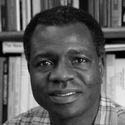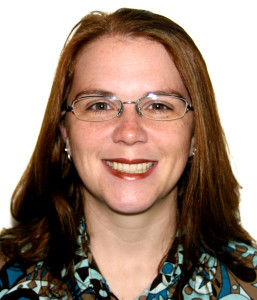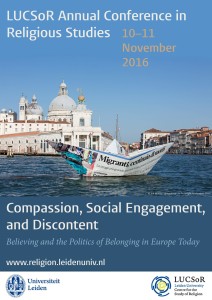2016
Holiday Greetings from the AASR
Dear Colleagues,
We extend greetings to all of you during this holiday season.
We thank all of you who attended our biennial conference in Ghana this past July and Dr. Rose Mary Amenga-Etego who led the local arrangements committee for their excellent work and the warm welcome they gave us in Ghana. We also thank our colleagues who presented papers at the recent AAR and SBL Annual Meeting in San Antonio that met from November 19-22 2017 and at the African Studies Association Annual Meeting that met in Washington DC December 1-3, 2016.
I extend our thanks to members of the executive, the regional and country representatives, the web team, the editorial team for the AASR Bulletin and the AASR E-journal for the hard work they do behind the scenes to promote our mission and the goals of our academic association.
We expect to complete consultation early in the New Year and send out an announcement and invitations to the next AASR biennial conference that will hold in Cameroon in 2018. We encourage you to make plans to attend that conference.
Happy holidays from members of the Executive Committee and your Regional and National Representatives.
Sincerely,
Elias Kifon Bongmba
AASR President
2016
Congratulations to Melissa Browning!
We extend our congratulations to Dr. Melissa Browning who has been appointed Assistant Professor of Contextual Ministry at the McAfee School of Theology at Mercer University. Brown served for a long time on the executive of the African Association for the Study of Religion and her partner Wes Browning worked with Jan Platvoet on the AASR Website.
Brown received her Ph.D. in Christian Ethics from Loyola University in Chicago and is author of Risky Marriage: HIV and Intimate Relationships in Tanzania. See her University Webpage for more details.
2016
2020 IAHR Congress to be held in New Zealand
For more on this announcement, see the IAHR website: http://www.iahr.dk/index.php
2016
AASR at the 2016 AAR/SBL Conference
Each year the AASR sponsors multiple panels at the joint American Academy of Religion (AAR) and Society of Biblical Literature (SBL) conference. This year the conference will be in San Antonio, TX, USA, from 19-22 November 2016. See below for information regarding AASR sponsored panels, as well as information on panels sponsored by the African Religions Group that will also be of interest to AASR members. In addition to the panels, we are also planning a dinner for Saturday, 19 November, at 19:00. The location is to be determined, but we will meet immediately following the AASR panel (‘Eschatology and African Religions’), which ends at 18:30.
Eschatology and African Religions
Esther Acolatse, Duke University, Presiding
Saturday – 4:00 PM-6:30 PM
Grand Hyatt-Lone Star F (2nd Level)
Throughout the world, prophets of doom have been characterized and caricatured by their signs proclaiming, “The end is nigh!” They are espousing an eschatological vision—they have a sense that the end of the world as we know it could be just around the corner. Yet many scholars have noted that eschatology is largely absent from African traditional religion. African religions tend to focus on the “here and now,” safeguarding the stability of community life. Even in the case of ancestor veneration, African religionists are not looking backward as much as securing right relations between the living and the dead to ensure the fertility and security of the community. Nevertheless, in the past century, most of Africa has come in contact with Islam or Christianity—both of which are religions with strong eschatological visions. Papers on this panel offer analyses of ways African traditional religions are responding to eschatological concerns; and how the Christian and Muslim eschatological notions are incorporated to cast new eschatological visions to meet uniquely African interests.
Loreen Maseno, Maseno University, and Kupakwashe Mtata, University of Bayreuth
Eschatological Prophecies: Female Pentecostal-Charismatic Preachers Self-Legitimation in Africa
Chammah J Kaunda, University of South Africa
The Bemba Eschatology and Socio-Relational Evolution: Implications for Bemba Christians in Pentecostal Assemblies of God in Zambia
Tim Carey, Boston College
“That All May Have Life, and Have It Abundantly”: Inter-Religious Perspectives of HIV and AIDS in Eastern Africa within Catholicism and Sunni Islam
Responding: Elochukwu Eugene Uzukwu, Duquesne University
We will meet for the AASR dinner immediately following the session.
Debility and Personhood in African Religions
Lovemore Togarasei, University of Botswana, Presiding
Sunday – 3:00 PM-4:30 PM
Grand Hyatt-Bonham B (3rd Level)
Across the continent of Africa, many associate the condition of debility and/or physical “abnormality” with spiritual and moral concerns. Such conditions might result from a religious transgression, as in the case of neglected ancestors, or they might result from spiritual “foul play” in the case of witchcraft. Some consider physical difference to be a source of power, which has both positive and negative implications. This panel explores the intersections of personhood, debility/physical abnormality, and religion from various perspectives and from several regions in Africa examining how African religions define and diagnose debility and physical abnormality, and how they account for the personhood of disabled people, while paying attention to analysis of both the positive and negative social implications of debility and physical abnormality.
Danoye Oguntola-Laguda, Lagos State University
Omoluabi: A Critical Analysis of Yoruba Concept of Person
Abimbola Adelakun, University of Texas
Prosperity Gospel and the Exorcism of Debility
Responding: Nathanael Homewood, Rice University
Business Meeting: Elias Kifon Bongmba, Rice University, and Corey Williams, Leiden University
Co-sponsored session with the African Religions Group: The Good Life and Social Justice in Africa: Ethical and Religious Responses to Exclusion
Monday – 9:00 AM-11:30 AM
Grand Hyatt-Bonham B (3rd Level)
The papers in this session explore various approaches to the Good, as well as tensions among them, that currently prevail on the African continent. Against the New Atheists’ assumption that religion is the root of all evil, the papers pursue ways in which African ethical and religious systems educate pupils, empower persons, enfranchise citizens, enhance health, expand rights, or fulfill other goals even as they question simplistic understandings of what is best in life. The papers engage these questions in a variety of contexts – from indigenous communities in Cameroon to a Kenyan refugee camp – and from a variety of methodological perspectives. This co-sponsored session is a response to the theme of the AAR 2016 meetings, Revolutionary Love, and to the AAR’s call for plenary sessions over the next three years on the theme of religion and hatred.
The session will be followed by the business meeting of the African Religions Group.
Ann K Riggs, Loyola University, Chicago
The Good Life in Kakuma Refugee Camp, Kenya
David Ngong, Stillman College
Ground Cargo and the Good Life: A Cameroonian Conception of Material Things
Ladislas Nsengiyumva, Boston College
African Theology of Disease: Understanding the Theological Meaning of Life from Abundant Life to Physical and Mental Afflictions
Business Meeting: Adriaan van Klinken, University of Leeds
In addition to the AASR sponsored panels, there are also a number of panels sponsored by the African Religions Group that will certainly be of interest:
African Religions Group and Anthropology of Religion Group: Researching Religion in Africa: Methodological Contributions and Challenges to Religious Studies
Adriaan van Klinken, University of Leeds, Presiding
Saturday – 9:00 AM-11:30 AM
Grand Hyatt-Bowie C (2nd Level)
Researching Religion in Africa: Ethnographic, Linguistic, Theological, and Philosophical Approaches and Reflections
Devaka Premawardhana, Colorado College, Presiding
Sunday – 9:00 AM-11:30 AM
Grand Hyatt-Bowie B (2nd Level)
African Religions Group and Indigenous Religious Traditions Group: Roundtable on Robert Baum’s West Africa’s Women of God: Alinesitoué and the Diola Prophetic Tradition (Indiana University Press, 2015)
Dianna Bell, Vanderbilt University, Presiding
Monday – 1:00 PM-3:30 PM
Convention Center-212B (2nd Level – West)
African Religions Group and Lesbian-Feminisms and Religion Group: African Responses to Violence in the Realms of Gender and Sexuality: Action, Ethics, Popular Art, and Religion
Tuesday – 8:30 AM-10:00 AM
Grand Hyatt-Bonham B (3rd Level)
2016
Conference: Leiden University Centre for the Study of Religion (10-11 November 2016)
The Leiden University Centre for the Study of Religion (LUCSOR) will be hosting an international conference on 10-11 November 2016. The theme is:
Compassion, Social Engagement, and Discontent: Believing and the Politics of Belonging in Europe Today
This LUCSoR conference aims to investigate forms and elements of religion in public settings and technologies of belonging in Europe today by taking compassion as a locus. We approach compassion not primarily as an emotion but as a social relation. Compassion may lead to social engagement, but also to the desire not to connect, to refuse engagement, or to turn away.
The conference is intended for scholars of religion of various disciplinary backgrounds interested in exploring new ways of studying religion in public settings.
The conference is free and open to all. Please register before 1 November 2016. For a tentative programme, see the conference website.
The papers start from small stories or vignettes of:
1. Compassion and social engagement of religious community groups and individuals
These may vary from local-based initiatives of informal care and volunteer aid, to more institutionalized forms of aid provided by religious community groups, such as faith-based refugee work and social service agencies caring for the poor and homeless. The vignettes provide a window into forms and elements of religion today and the politics of belonging: who deserves compassion, who is excluded or undeserving, and what does the response toward suffering entail?
2. Discontent and anxiety about multiculturalism in everyday life
This category of papers engages with a relatively under-researched topic: the discontent of the “angry” citizen, who feels ignored by politicians, who, unlike the elites in their ivory tower, experiences daily what it means to live in a multicultural society, and who may express her- or himself in riotous protests against the resettlement of refugees. What values underlie their discontent? What makes them reject certain forms of compassionate action and choose others?
The focus of the conference is Europe today, but other times and other places also receive attention.




